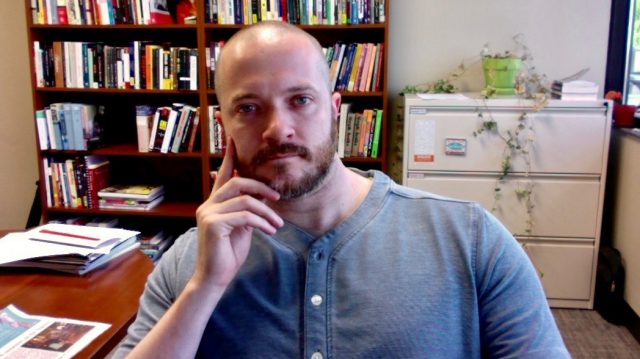
Sociology professor James Thomas is among 14 fellows selected by the Russell Sage Foundation as part of its 2022-23 visiting scholars program. Submitted photo
OXFORD, Miss. – University of Mississippi professor James M. Thomas is heading to New York City to continue his exploration into how white Southerners are making sense of race and racism.
The associate professor of sociology is among 14 fellows selected by the Russell Sage Foundation as part of its 2022-23 visiting scholars program. The fellows, who include researchers from Columbia, Georgetown, Vanderbilt and Yale universities, will head to the foundation’s headquarters in New York for their residencies.
“White Southerners have conflicting and complicated views about their place in America’s social hierarchy,” Thomas said. “But they are often depicted monolithically by lay people because they’re viewed through a single lens.
“During the last several years, we’ve seen dog whistles turn to fog horns, and I want to understand how white Southerners are making sense of all they are bearing witness to – America in a crucible space.”
This is the latest in a series of Thomas’ research into racism throughout time. Other projects include the racial formation of medieval Jews and how contemporary urban nightlife “reproduces images about race and racism.”
In October, the National Science Foundation also funded his research on white Southerners. Since then, a research team led by Thomas has been interviewing rural Mississippians and Memphis residents and analyzing their responses.
“The Russell Sage visiting scholar award is a prestigious honor that recognizes the high caliber of Dr. Thomas’ work as a researcher, said Jeffrey T. Jackson, professor of sociology and chair of the Department of Sociology and Anthropology.
“It reflects well on the University of Mississippi and the Department of Sociology and Anthropology as places where cutting-edge scholarship on race and racism is taking place and making a difference.”
Established in 1907, the foundation aims to improve social and living conditions in the U.S. through social sciences. It does so by supporting work focusing on the methods, data and theory to best understand and help societal problems. To date, nine former visiting scholars have won Nobel Prizes.